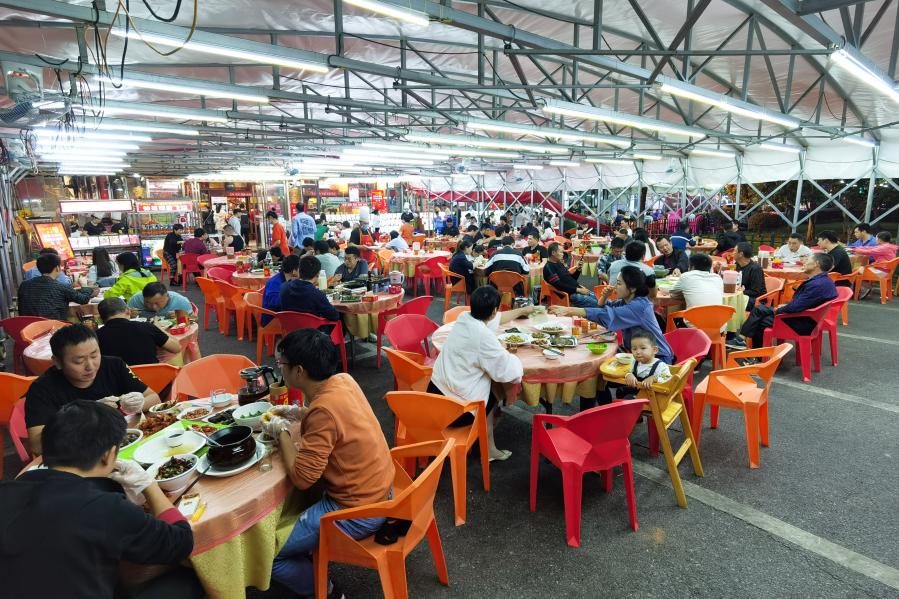-- The COVID-19 hit China's catering industry hard as the epidemic forced the temporary closure of many restaurants and saw cautious customers stay home rather than dine out.
-- As the epidemic has been generally contained, China's catering industry is seeing clear signs of recovery.
-- Experts say the catering consumption is expected to return to the pre-epidemic level by the end of the year.
CHANGSHA, Sept. 20 -- As dinnertime approached, food aficionados began to form a long line at the entrance of a popular crayfish restaurant in Changsha, capital of central China's Hunan Province.
After the resumption of dine-in service on March 16, Wenhoyo Superb, also began accepting online reservations. However, many diners still line up at the gate.
"Our business began to gradually recover after the resumption of work. The online booking service helps a lot to prevent long queues and attract more customers," said Li Mingyue, a staffer with the brand.
The COVID-19 epidemic hit the Chinese catering industry hard as the epidemic forced the temporary closure of many restaurants and saw cautious customers stay home rather than dine out.
According to the National Bureau of Statistics, China's catering revenue was 1.46 trillion yuan (about 216 billion U.S. dollars) in the first half of this year, down 32.8 percent year on year.

Customers dine at a restaurant in the Quantang community of Changsha, central China's Hunan Province, Sept. 19, 2020. (Xinhua/Chen Sihan)
As the epidemic has been generally contained, China's catering industry is seeing clear signs of recovery. The catering revenue decline narrowed to 11 percent year on year in July, and to 7 percent in August, new data showed.
"The catering consumption is expected to return to the pre-epidemic level by the end of the year," said Liu Yan, an expert with the China Hospitality Association.
FOOD AND CATERING EXPO
With the theme of "innovative integration, quality consumption," the 2020 China International Food & Catering Expo was held in Changsha from Friday to Sunday.
More than 2,000 companies from home and abroad participated in the expo, aiming to seek potential cooperation partners, promote products and services, and revive their business.
Given the epidemic's impact, the expo this year served as a crucial platform to stabilize the market and boost the orders of domestic food and catering enterprises.













